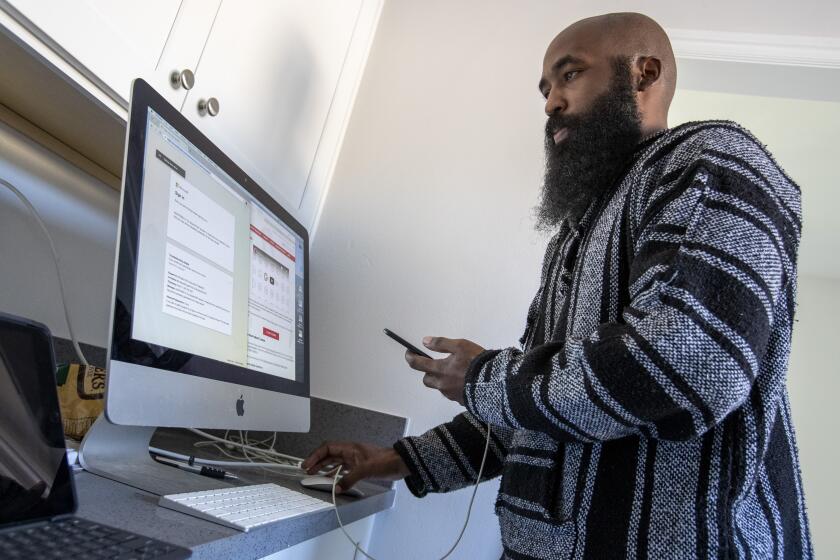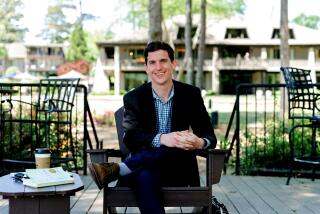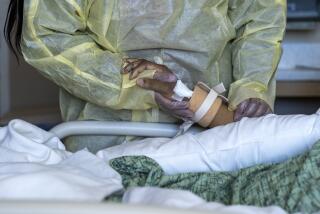Op-Ed: How you can help someone who is struggling with the guilt of transmitting COVID
When someone unintentionally kills someone else, it’s usually because of a car crash. This year, COVID-19 could easily be the No. 1 cause of such deaths.
In the U.S., over 340,000 people have died of COVID since March. Comparatively, an estimated 28,000 people a year survive a car crash in which at least one person is killed — and not every survivor is considered an accidental killer.
The horror of transmitting the coronavirus to another person isn’t as clear-cut as being behind the wheel during an automobile accident. You can’t be 100% certain you transmitted the virus that caused another human to die, unless that person had absolutely no contact with anyone else in the world.
Regardless, those who live with the knowledge that they probably infected others with the virus may experience a toxic stew of guilt, sorrow, fear and defensiveness. I know this because many years ago I unintentionally killed a child who dashed into the road in front of my car. When I realized how few resources there were to help people manage the trauma of inadvertently killing or harming others, I decided to use my training as a social psychologist to study how to help those who have caused such tragedies.
Suspecting, or knowing, that you’ve transmitted the virus can be a sentence of unending misery, especially if it ended a life or caused a disability. Early in the pandemic, a grieving son told me, “I killed my grandfather.” A woman who fears she transmitted the virus to her friends recently emailed to say, “How can I feel normal when I have caused so much suffering?”
Some people transmit COVID despite doing everything they can to protect those around them. Others are negligent or reckless. Most fall somewhere in the middle, taking risks that seemed reasonable at the time. For instance, some Thanksgiving travelers may have thought they were safe because they tested negative for the coronavirus before their trips, but they were in the earliest stage of infection or contracted the virus en route.
Contact tracers tell people they’ve tested positive for the coronavirus or warn they’ve been exposed to it. The conversations are confidential and sometimes surprisingly intimate.
When we fail to meet the moral standards we hold for ourselves, a crisis of conscience that psychologists call “moral injury” can result. This is the psychological and spiritual distress resulting from perpetrating, witnessing or failing to prevent acts that violate our core moral beliefs. Writing about his anguish after a car crash that killed a motorcyclist, the Rev. David Peters said, “There was nowhere I could go to get away from the feeling that I was no longer good.”
Boston University researcher Brett Litz and colleagues have identified three categories of moral injury symptoms: self-injury, including suicidal thoughts and substance abuse; demoralization, such as a sense of worthlessness; and self-handicapping, including isolation and shutting down positive emotions.
This is in keeping with what I hear from people struggling with having given the virus to someone else. Many others will keep their feelings and thoughts to themselves because they feel ashamed and undeserving of support, or they are afraid of being blamed and ostracized.
In the midst of the pandemic, it may seem like it’s asking too much to extend compassion to those whose negligence, ignorance or error led to someone else’s illness, disability or death. We are more likely to shame them, often in the harshest terms, for their actions.
As for those who took all recommended precautions but were doubly unlucky to both catch and transmit the coronavirus, we tell them there was nothing they could have done differently so they need to forgive themselves and move on. This is especially true for front-line and essential workers who often have no choice but to expose themselves, and then their families, to the virus.
Still, a person with moral injury often feels alone, even abandoned.
Guilt is appropriate when we harm someone. In most cases, guilt is a signal to take action — to make amends, apologize and seek to improve ourselves. But in severe cases of moral injury, the guilt can become disabling, interfering with their ability to love, work and relate to others. Without treatment, those afflicted are likely to live smaller lives. They have less to offer to their families, their co-workers and their communities, causing all of us to lose out.
As the pandemic continues, more people are likely to experience moral injury after transmitting the disease. Society will need to help them overcome it.
My experience suggests three elements are critical to alleviating an injury to our moral conscience — accountability, compassion and community.
Accountability means acknowledging to ourselves, and possibly to others, that we harmed another even though we didn’t mean to. It means thinking about whether we need to make behavioral changes to protect others without indiscriminately heaping blame on ourselves. Part of accountability is acknowledging the limits of personal control. An accurate appraisal is the goal.
It’s not necessary or useful to excuse carelessness, and those who grieve for a loved one should not be expected to offer forgiveness (although some will). But just by showing compassion we can validate the humanity of the person who transmitted COVID and acknowledge the distress that is felt.
Community refers to working to make the world a better place. This can be community service or activism, or simply resolving to live with compassion and kindness. None of this makes up for causing another person’s death or illness. It does, however, honor those who have suffered or died. It also restores a sense of agency, self-respect and belonging.
Not everyone who transmits the coronavirus will experience moral injury. Some will deny responsibility or have the resilience to cope effectively, and many will never know what role, if any, they played in spreading the virus.
Yet it is not unreasonable to expect that thousands of people will struggle with the guilt that comes from infecting another person. By acknowledging how much it hurts to hurt someone, we can help them heal.
Maryann J. Gray is the founder of Accidental Impacts, an organization for those who have unintentionally killed or seriously injured other people.
More to Read
A cure for the common opinion
Get thought-provoking perspectives with our weekly newsletter.
You may occasionally receive promotional content from the Los Angeles Times.











